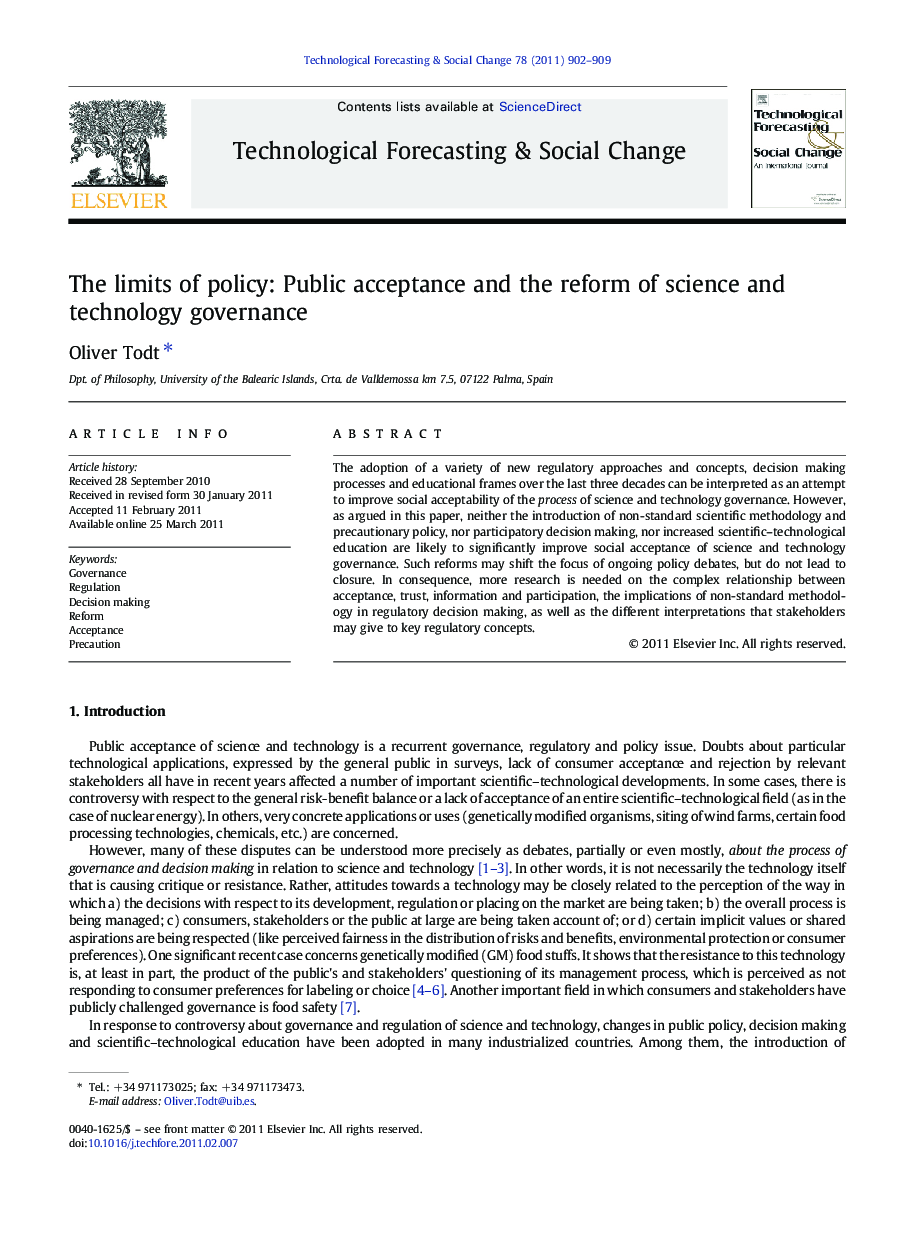| Article ID | Journal | Published Year | Pages | File Type |
|---|---|---|---|---|
| 896751 | Technological Forecasting and Social Change | 2011 | 8 Pages |
The adoption of a variety of new regulatory approaches and concepts, decision making processes and educational frames over the last three decades can be interpreted as an attempt to improve social acceptability of the process of science and technology governance. However, as argued in this paper, neither the introduction of non-standard scientific methodology and precautionary policy, nor participatory decision making, nor increased scientific–technological education are likely to significantly improve social acceptance of science and technology governance. Such reforms may shift the focus of ongoing policy debates, but do not lead to closure. In consequence, more research is needed on the complex relationship between acceptance, trust, information and participation, the implications of non-standard methodology in regulatory decision making, as well as the different interpretations that stakeholders may give to key regulatory concepts.
Research Highlights► The recent reforms in technology governance are not sufficient to assure acceptance. ► This applies to education, participation, precaution and regulatory decision making. ► Some of those reforms may even turn out to be counterproductive. ► More research, especially on public perception of technology governance, is needed.
